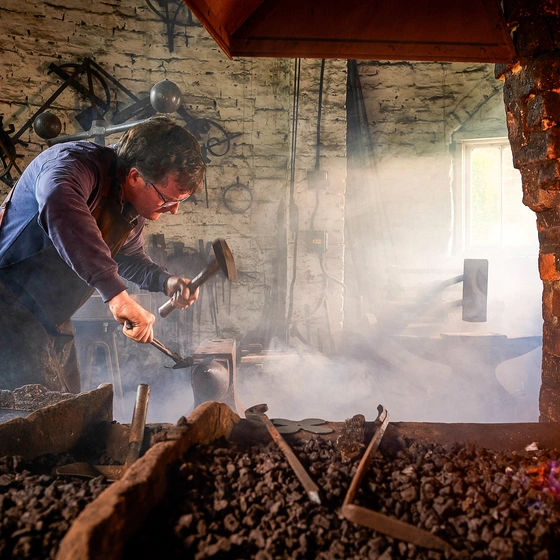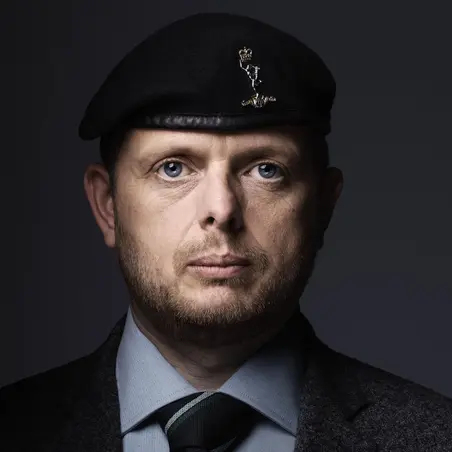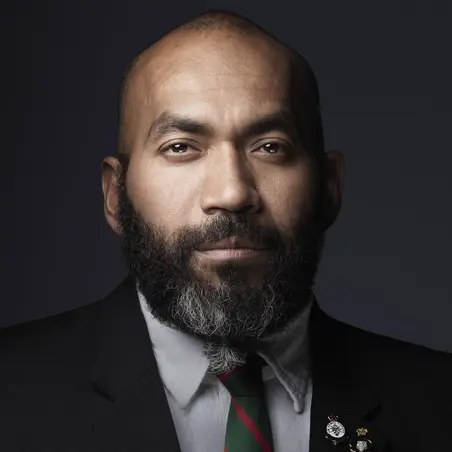Liam had always wanted to join the Army.
His great grandfathers both fought in the First World War and his father served in the Paratroopers. He was captivated by their stories when he was a young boy.
Fourth generation to join the Army
“It's just something I always wanted to do. It was one of those things the money's good, you meet new people and you get to go around the world.”
“The Army was always the path I wanted to follow and I never envisaged doing anything else from a young age,” he said.
Liam joined the Army in 2002 and served with a cavalry regiment - the Light Dragoons - deciding not to follow his fathers’ footsteps as he “didn't fancy jumping out of aeroplanes.”
He was deployed to Iraq in 2005 and then Afghanistan in 2007.
“I don’t think I appreciated emotionally how it affected everyone at home,” Liam says.
“My dad had been in the army so I assumed my dad would be cool with it, he’d understand because he lived the life, but I’m an only child and he sent his only son off to go and do the job he’d been doing for the last 20 years.
“I don’t think I appreciated how hard it hit my mum until very recently, until I had my son. It’s hard to talk to my mum about it because I know it affected my mum quite hard and I don’t think I ever really appreciated that.”
Family left behind
"She’s told me before that she couldn’t and my step-dad had to force her to get out of bed and go to work, or to the shop or go do something," Liam says.
“She put herself on a media blackout because she was so worried.
“You go off to Iraq or Afghanistan and it’s on the news that some one’s been killed in Iraq, and they’re just sat there thinking; ‘well was he there? Was he not? Was it him? Was it someone he knew?’
“They know that if it was you, they would know about it, but I think my mum just lived in constant fear of someone coming and knocking on the door.”
It was in Afghanistan that Liam fell ill on while on patrol, which led to injury and he was diagnosed with a tear in the bowel, which lead to long-term complications.
After the initial injury, he spent two weeks in hospital in Camp Bastion before being taken back to the UK for treatment at Selly Oak Hospital, Birmingham.
“I didn’t appreciate that it hit my dad emotionally until I was in hospital.”
“He said he went home every night and just tried to drink himself to death because he didn’t know what to do, because he felt completely helpless that he couldn’t help me. It was only later when we talked about it that I said; ‘if you hadn’t have been there, I’d have been sat there on my own, with other guys who were a lot worse than me.’
“I was still kicking, I could still get out of bed and I still had all of my functions and everything. There were guys in there that were a lot worse than me. I felt helpless as well because you just want to go and help everybody, but you can’t.”
Once he was discharged from hospital Liam spent six weeks on sick leave which he admits was a difficult time.
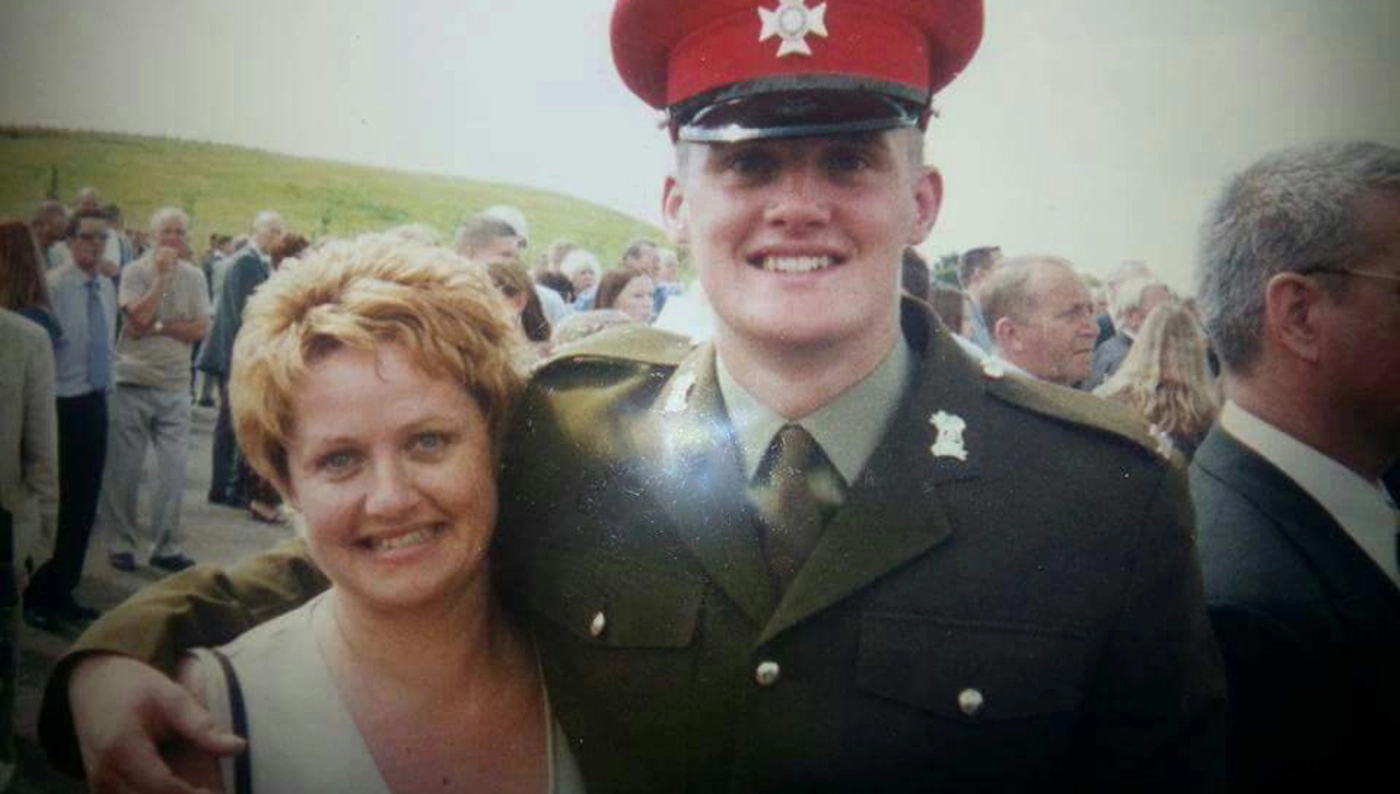
“I didn't enjoy it if I'm being brutally honest,” he says.
“All I kept doing was getting up every morning turning the telly on and sitting in front of the news watching to make sure that all the guys were ok.
“Not only my troop but my squadron as well. It sort of took over my entire life and my old man was getting quite worried about the fact that I was obsessing over making sure everything was all right.
“I was also in and out of hospital. It got really stressful because you just want to be back in uniform going and doing your job.”
Whilst he was in hospital Liam was visited by Legion volunteers who checked on him every day.
“There were a group of guys and girls from the Legion and they made sure you weren’t moping around, there was a whole support chain there.
“They also gave financial support to my father who had to travel down from the North East to visit me in hospital and ensured I had everything I needed during my recovery so I didn’t feel lonely or lost.”
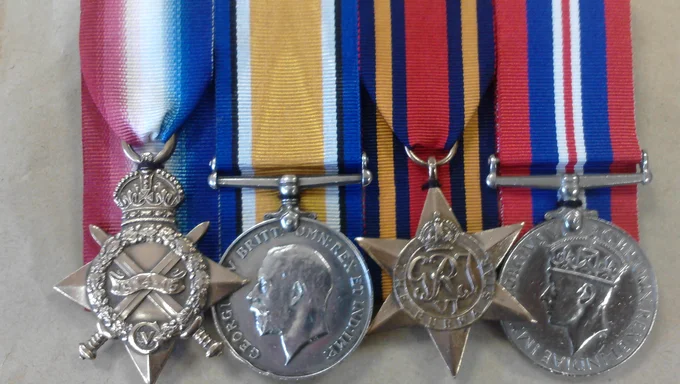
Support the Armed Forces community.
After recovering Liam went back to work within his regiment. However, during 2009, he lost several close friends who were killed in service. At the time Liam was back in the UK working to support his battalion and dealt with the fallout of the guys being injured and killed out in Afghanistan. It was then that he saw the welfare system at work and the support the Legion provided that drove him to want to do more with the RBL.
In 2014 Liam was medically discharged and after leaving the Army he struggled to adapt to civilian life.
“I didn't have any idea what I wanted to do with my life.
“I struggled with everything with civilian life. Obviously civilian work ethic is different, and I struggled to find anything I really enjoyed.”
Liam tried many different jobs to support him and his young family. But after the breakdown of his relationship he fell into a deep bout of depression.
“I just got to the point where, I think everyone gets to that point where they just think 'I'm going to give up'.
“And it was a struggle because then I thought I can't, I don't have the option to just give up because I'm a dad and I've got to be there for my son.”
Finding support
“I went and Pete who I was sitting with said 'So how you getting on then?' And I just told him everything. It was then when the cogs immediately kicked into action.”
Liam was visited by local RBL support staff who helped him get housing and assistance to find a job.
“I couldn’t have coped without having that simple contact and knowing RBL was there when I was at my lowest point.”
Liam is now in a much better place working as a hazardous cargo inspector for the U.S. Air Force.
He has also thrown himself into giving back to the Armed Forces community and is now following in his family’s footsteps by not only being an RBL member, but a County Youth Officer for Norfolk.
“Now as a beneficiary, member and fundraiser, I say to people, come to the branch meetings, you get out into the community and fundraise and it keeps people together,” Liam said.
“It gives you an excuse to chuck on your beret and medals.
“It doesn’t matter whether you came out one year or 15 years ago, it’s a hard transition which is why RBL is so important.”
